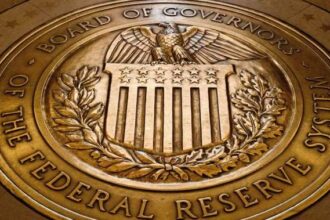The financial reckoning for Canada’s pandemic-era homebuyers is approaching rapidly. With over $250 billion in mortgages set to renew in 2025—nearly double the typical annual amount—millions of Canadian homeowners face a potentially painful adjustment as historically low interest rates give way to significantly higher borrowing costs.
“We’re looking at the largest wave of mortgage renewals in Canadian history,” said James Orlando, Director of Economics at TD Bank, in a comprehensive report released Tuesday. “The average homeowner renewing next year could see monthly payments jump by $300 to $700, depending on their original rate and amortization period.”
The financial impact will be most acute for those who secured mortgages during the pandemic’s rock-bottom rates. Homeowners who locked in five-year fixed mortgages at around 2% in 2020 may now face renewal rates closer to 5%, creating payment shocks that could strain household budgets already dealing with elevated inflation.
TD’s analysis suggests that while the mortgage renewal cliff will certainly cause financial stress, it’s unlikely to trigger a wave of defaults or a housing market collapse. The bank’s economists note that most affected households have seen wage growth since their original mortgage, partially offsetting higher payments. Additionally, many have accumulated substantial home equity due to rising property values during the pandemic boom.
“We estimate that approximately 80% of homeowners facing renewal will manage the higher payments without severe financial distress,” Orlando explained. “The remaining 20% may need to make significant lifestyle adjustments or explore refinancing options to extend amortization periods.”
The Bank of Canada’s recent interest rate cuts—with its key lending rate lowered to 4.25% from a peak of 5%—provide some relief, but renewal rates will still represent a substantial increase for most homeowners. The central bank has signaled further potential cuts through 2025, which could gradually ease renewal pressure.
Financial institutions are preparing for the renewal wave by expanding their mortgage servicing teams and developing assistance programs. “We’re proactively reaching out to clients with renewals approaching in the next 12-18 months,” said Tammy Evans, head of retail lending at one major Canadian bank. “Early planning is crucial to navigate these transitions successfully.”
For homeowners approaching renewal, financial advisors recommend reviewing budgets now, considering lump-sum prepayments to reduce principal, and exploring renewal options early rather than waiting until the last minute.
The mortgage renewal stress will coincide with other economic pressures, including persistent inflation and slowing economic growth. While TD economists expect the overall impact to be manageable at a national level, certain regions with higher concentration of pandemic-era buyers—particularly in Ontario and British Columbia—may experience more pronounced effects on consumer spending and real estate markets.
As this financial challenge unfolds, both policymakers and financial institutions will be closely monitoring household debt metrics and delinquency rates for early signs of systemic stress. The coming year will test the resilience of Canadian homeowners as they navigate this unprecedented wave of mortgage renewals.










